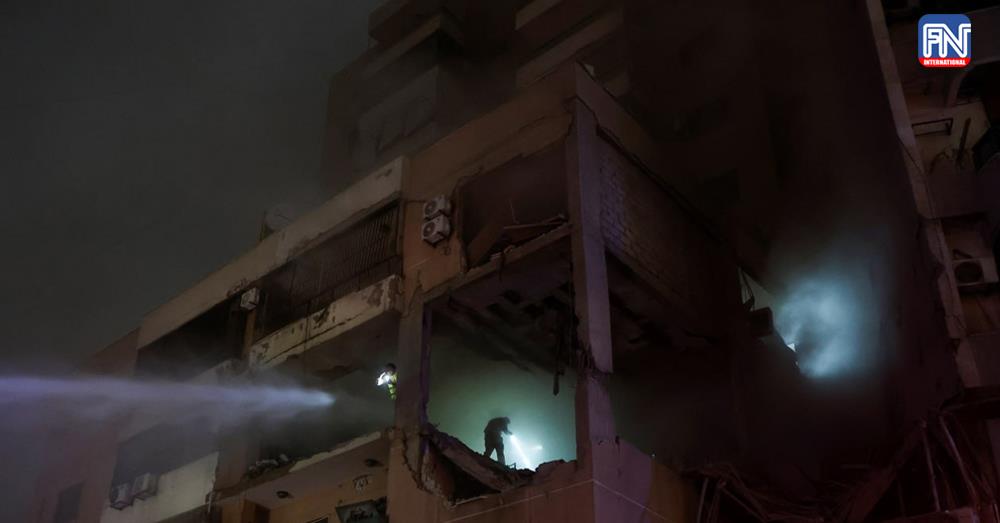BEIRUT,, Jan 2 (Reuters) - Israel killed Hamas deputy leader Saleh al-Arouri in a drone strike in Lebanon's capital Beirut on Tuesday (Jan 2), Lebanese and Palestinian security sources said, as its tanks and warplanes pummelled Gaza in further "high-intensity" warfare against the militant group in the enclave.
Arouri, 57, was the first senior Hamas political leader to be assassinated since Israel launched a shattering air and ground offensive against Gaza's Hamas rulers almost three months ago after a shock Hamas militant rampage into Israeli towns.
His killing could heighten the risk of the Israel-Hamas war spreading well beyond the Gaza Strip. Lebanon's heavily armed Hezbollah group, a Hamas ally, has been exchanging near-daily fire with Israel across Lebanon's southern border since the war in Gaza began.
Hamas radio and TV and Lebanon's pro-Iranian Mayadeen TV confirmed word from security sources that Arouri, a member of the Palestinian militant movement's politburo based abroad and a co-founder of Hamas' military wing, the Izz-el-Deen al-Qassam Brigades, had been killed when a drone struck a Hamas office in south Beirut.
In all, the drone attack killed six people in the city's southern suburb of Daliyeh, a Hezbollah redoubt, the Lebanese state news agency said. Two security sources said the drone targeted a meeting and Hamas' Al Aqsa TV said commanders of the group's armed wing in Lebanon - Samir Findi Abu Amer and Azzam Al-Aqraa Abu Ammar - were among the dead.
Asked to confirm that Israel was behind Arouri's slaying, Israeli military spokesman Daniel Hagari told a media briefing: "We are focused on killing Hamas."
He declined to elaborate.
Mark Regev, an adviser to the Israeli Prime Minister Benjamin Netanyahu, said in an interview with MSNBC TV that Israel "has not taken responsibility for this attack".
"But whoever did it, it must be clear - this was not an attack on the Lebanese state," he said. "Whoever did this did a surgical strike against the Hamas leadership".
Israel had accused Arouri of ordering and supervising Hamas attacks in the Israeli-occupied West Bank for years.
"I am waiting for martyrdom (death) and I think I have lived too long," Arouri said in August 2023, alluding to Israeli threats to eliminate Hamas leaders whether in Gaza or abroad.
Arouri had spent time recently in both Lebanon and Qatar, where a Hamas official said he was at "the heart of negotiations" conducted by Cairo and Doha over ways of resolving the Gaza conflict, and the release of hostages Hamas took in its Oct. 7 incursion into Israel.
Lebanese caretaker premier Najib Mikati condemned the attack as a "new Israeli crime" and an attempt to pull Lebanon into war. His office said he asked his foreign minister to file a complaint to the UN Security Council over all "new Israeli violations of Lebanese sovereignty".
Nasser Kanaani, spokesperson for the foreign ministry of Iran, a major supporter of Hamas and Hezbollah, said Arouri's killing would "undoubtedly ignite another surge in the veins of resistance and the motivation to fight against the Zionist occupiers, not only in Palestine but also in the region and among all freedom-seekers worldwide".
In a televised speech in August, Hezbollah leader Hassan Nasrallah had warned Israel against carrying out any assassinations on Lebanese soil, vowing a "severe reaction".
Hundreds of Palestinians took to the streets of Ramallah and other towns in the West Bank to condemn Arouri's killing, chanting, "Revenge, revenge, Qassam!"
The Gaza war was triggered by a shock cross-border Hamas assault on Israeli towns on Oct 7 that Israel says killed 1,200 people with some 240 hostages spirited back to Gaza - the bloodiest single day in the Jewish state's 75-year history.
The Gaza health ministry said 207 people had been killed in the past 24 hours, bringing the total recorded Palestinian death toll to 22,185 in nearly three months of war in Gaza, the most lethal chapter of the decades-long Israel-Palestinian conflict.
Israeli Defence Minister Yoav Gallant said operations around Khan Younis, southern Gaza's main city, concentrated on areas above the tunnel network where Hamas leaders were believed to be hiding.
